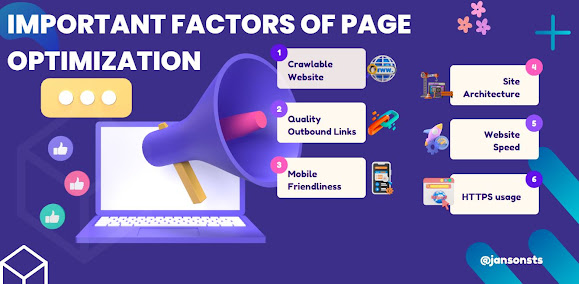The Evolving Role of Artificial Intelligence in
Search Engines
Introduction
The
Evolving Role of Artificial Intelligence in Search Engines
Understanding
the Impact of AI on Search Engines
1.
Enhanced Search Results Accuracy
2.
Natural Language Processing (NLP)
3.
Personalized Search Experience
5.
Rich Snippets and Featured Snippets
SEO
Techniques for Optimizing Your Website
1.
Create High-Quality and Relevant Content
3.
Implement Structured Data Markup
4.
Mobile-Friendly Website Design
6.
Leverage Social Media and Content Promotion
7.
Regularly Update and Refresh Content
Frequently
Asked Questions (FAQs)
Understanding the Impact of AI on Search Engines
1. Enhanced Search Results Accuracy
2. Natural Language Processing (NLP)
3. Personalized Search Experience
4. Voice Search Revolution
Voice search, fueled by AI-driven virtual assistants like Siri, Google Assistant, and Alexa, has transformed how users interact with search engines. The convenience of using voice commands has made voice search increasingly popular among users. AI technologies, such as speech recognition and natural language understanding, power voice search, enabling search engines to respond accurately to voice-based queries.
5. Rich Snippets and Featured Snippets
AI has facilitated the introduction of rich snippets and featured snippets in search engine results. These snippets provide concise and valuable information directly on the search results page. By implementing structured data and optimizing content, website owners can increase the chances of their content appearing in these snippets, enhancing visibility and driving organic traffic.
6. Image and Video Search
SEO Techniques for Optimizing Your Website
Now that we have explored the significant impact of AI on search engines, let's dive into some essential SEO techniques to improve your website's ranking and visibility:
1. Create High-Quality and Relevant Content
2. Optimize for Voice Search
3. Implement Structured Data Markup
Structured data markup helps search engines understand the context of your content better. By incorporating structured data, you increase the chances of your website's content being featured in rich snippets and featured snippets. This added visibility can significantly improve your click-through rates and organic traffic.
4. Mobile-Friendly Website Design
With the majority of searches now originating from mobile devices, having a mobile-friendly website is critical for SEO success. Optimize your website's design and ensure that it loads quickly on mobile devices. A seamless mobile experience not only enhances user satisfaction but also positively impacts your search engine rankings.
5. Focus on User Experience
User experience is a crucial factor in search engine rankings. Make your website easy to navigate and visually appealing. Ensure that users can find the information they are looking for quickly and without any hassle. A positive user experience encourages longer visit durations and repeat visits, signaling search engines that your website is valuable to users.
6. Leverage Social Media and Content Promotion
Social media platforms provide an excellent opportunity to promote your content and drive traffic to your website. Share your articles, blog posts, and videos across various social channels to reach a broader audience. Increased social media engagement can lead to more backlinks, which are essential for SEO.
7. Regularly Update and Refresh Content
Search engines favor websites that frequently update their content. Regularly publishing new articles and refreshing existing content signals search engines that your website is active and relevant. Update outdated information, and ensure that your content remains accurate and up-to-date. Conclusion
Frequently Asked Questions (FAQs)
Q1: How does AI improve the accuracy of search engine results?
Q2: Can AI understand natural language queries?
Yes, AI-driven search engines incorporate Natural Language Processing (NLP) to understand natural language queries effectively. Users can now use conversational language to interact with search engines, making the search process more user-friendly.Q3: How does personalization work in search engines?
Q4: How can I optimize my content for voice search?
Q5: What are rich snippets and featured snippets?
Rich snippets and featured snippets are enhanced search results that provide concise and informative content directly on the search results page. Websites that implement structured data and optimize their content have a higher chance of being featured in these snippets.
Useful Links
The Impact of AI and Machine Learning on SEO - Jezweb
Five Ways to Improve your Site's Ranking (SEO) | Michigan Technological University (mtu.edu)
SEO
Starter Guide: The Basics | Google Search Central | Documentation
| Google for Developers
References
1. “Understand JavaScript SEO Basics”
2. “Organizing Information — How Google Search Works”
4. “Googlebot”
5. “Search Engine Market Share Worldwide”
7. “90.63% of Content Gets No Traffic From Google. And How
to Be in the Other 9.37%”
9. “Ranking Search Results — How Google Search Works”
10. “Using site speed in web search ranking”
11. “Using page speed in mobile search ranking”
12. “Mobile-first indexing best practices”
13. “Find & control your Web & App Activity”





This article brilliantly highlights the evolving role of AI in marketing. It’s fascinating how AI can now predict consumer behavior and optimize campaigns effectively.
ReplyDeleteReference: kg娛樂城不是詐騙
The insights into AI's potential to automate repetitive marketing tasks are spot on. It’s allowing businesses to focus on more creative strategies.
ReplyDeleteReference: 3a娛樂城會員轉移
AI's ability to enhance customer segmentation and targeting is impressive. It can really make a difference in improving ROI for marketing campaigns.
ReplyDeleteReference: 3A娛樂城運彩下注
I love the point about how AI can assist with content generation. It’s amazing to think about the potential for businesses to scale their content marketing efforts.
ReplyDeleteReference: 威樂娛樂城
The post effectively discusses the ethical concerns around AI in marketing. Balancing automation with human touch is key to maintaining trust with consumers.
ReplyDeleteReference: 威樂娛樂城
AI’s potential in real-time analytics and reporting is impressive. Marketers now have instant feedback to tweak campaigns, making them more agile.
ReplyDeleteReference: KG娛樂城
It’s amazing how AI can analyze huge amounts of data to detect patterns and predict future trends. This makes marketing more strategic and effective.
ReplyDeleteReference: 3A娛樂城
The ability of AI to create dynamic ads based on user behavior is revolutionary. It’s definitely a trend to watch in the marketing space!
ReplyDeleteReference: 3A娛樂城
This article sheds light on AI’s growing role in customer service, from chatbots to virtual assistants. It’s a great example of how AI is improving customer experiences.
ReplyDeleteReference: GoFun娛樂城
The post correctly emphasizes that AI should be seen as a tool to support human creativity, not replace it. It’s all about using AI to enhance our efforts, not take over.
ReplyDeleteReference: wbc官網